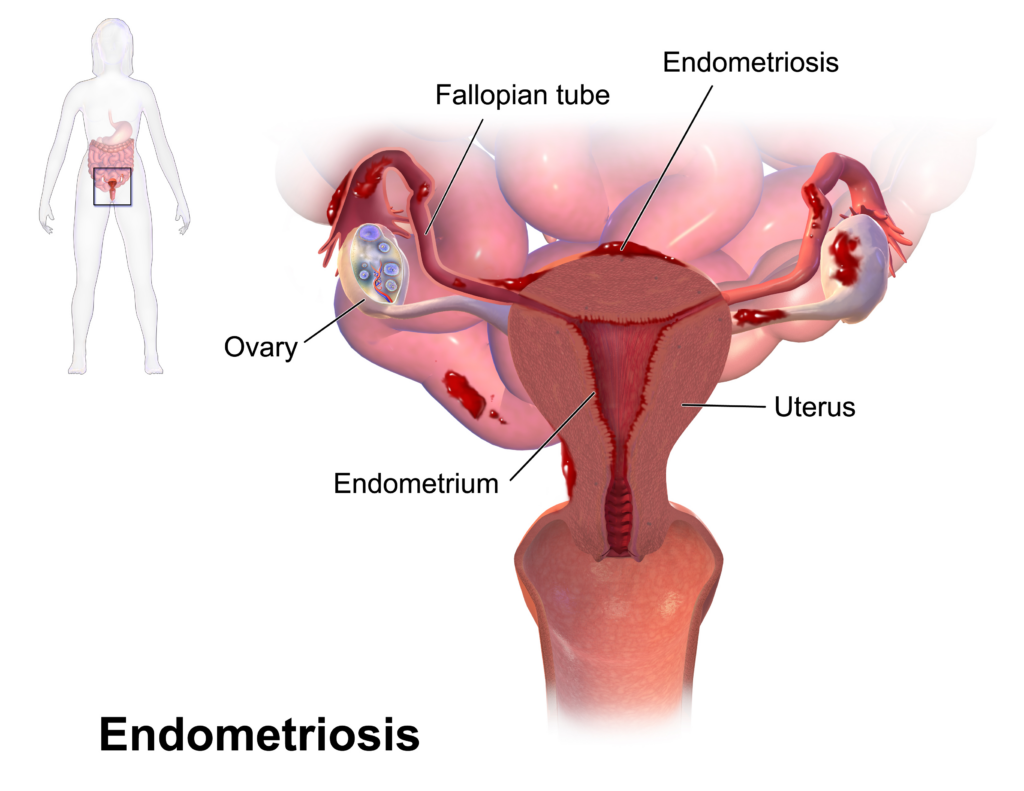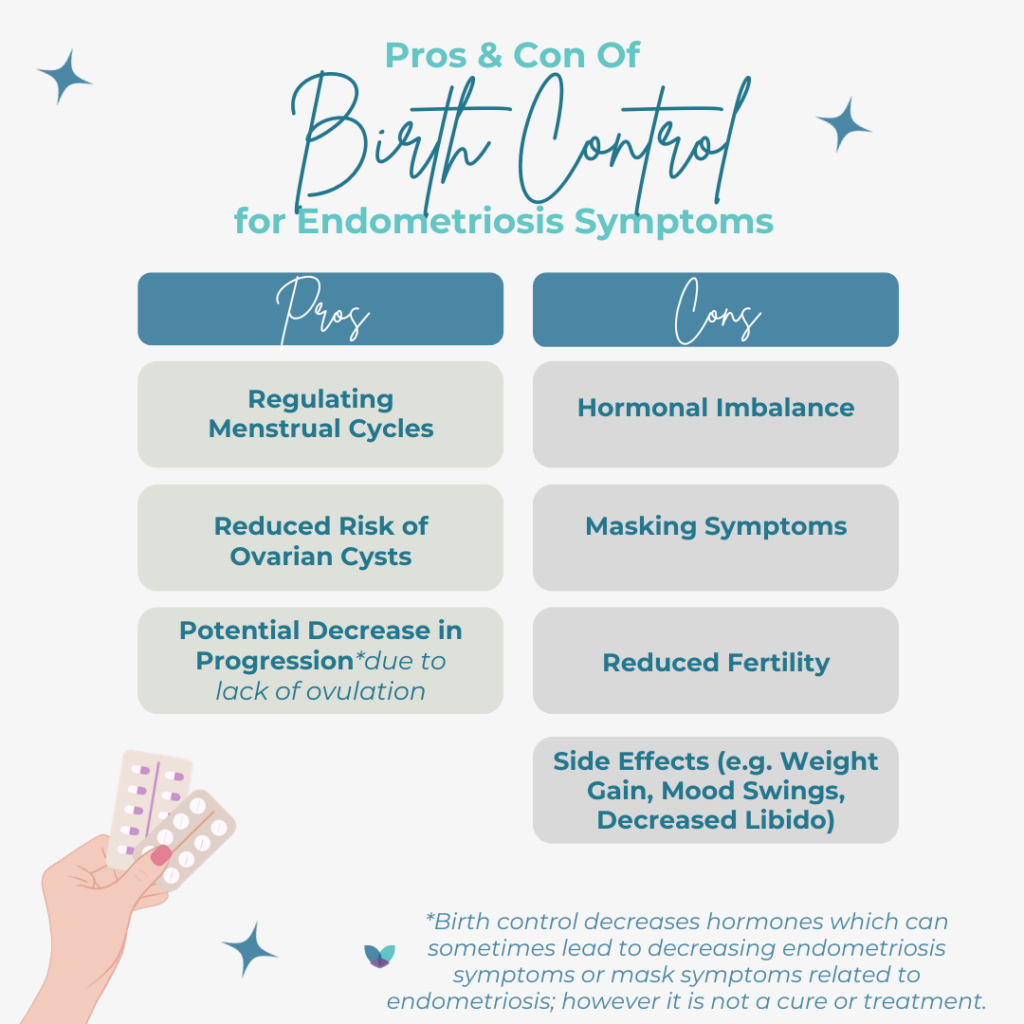BY KIMBERLEE LEISHEAR, DO
What is Endometriosis?
Endometriosis is a complex medical condition affecting millions of women worldwide. It is a chronic systemic (whole-body) inflammatory disease. In endometriosis, there are inflammatory lesions present in the body that are not supposed to be there. The inflammatory lesions consist of tissue that is similar to the inner lining of the uterus (the endometrium) but found outside of the uterus. These inflammatory lesions respond to hormones such as estrogen.
These lesions are known to cause pain, heavy periods, and even fertility problems. Although there is no cure for endometriosis, multiple treatment options, including birth control, can help some women manage their symptoms.

Does Birth Control Help Endometriosis?
Birth control decreases hormones which can sometimes lead to decreasing endometriosis symptoms or mask symptoms related to endometriosis. By suppressing ovulation, birth control pills restrict the growth of endometrial tissue outside the uterus, it has been found to help some women relieve symptoms such as pelvic pain, heavy bleeding, and menstrual cramps.
With that being said, while birth control may help decrease endometriosis-related symptoms, birth control cannot cure or treat underlying endometriosis.
Positive Effects of Birth Control on Endometriosis:
Some women may find some relief from their endometriosis symptoms while taking birth control, but that is not always the case. Women who have found relief have found birth control to:
- Regulating menstrual cycles: Many women with endometriosis experience irregular periods. Birth control can help regulate the menstrual cycle, making it more predictable, manageable, and potentially reducing the severity of symptoms.
- Prevention of endometrial implants: By inhibiting ovulation, birth control pills help prevent the formation of endometrial implants outside the uterus, potentially slowing down the progression of the condition.
- Reduced risk of ovarian cysts: Women with endometriosis are at a higher risk of developing ovarian cysts. Birth control pills can lower this risk by inhibiting follicle development and ovulation, which are the primary causes of ovarian cysts.

Negative Effects of Birth Control On Endometriosis
While birth control pills are commonly prescribed to manage the symptoms of endometriosis, it is crucial to acknowledge that they may have some negative effects for some individuals. Here are a few potential negative effects of birth control on endometriosis:
- Hormonal Imbalance: Birth control pills work by altering hormone levels, primarily by suppressing ovulation. However, this hormonal manipulation can lead to imbalances in estrogen and progesterone, potentially exacerbating endometriosis symptoms in some cases.
- Masking Symptoms: Birth control can mask the symptoms of endometriosis, making it difficult to diagnose and manage the condition effectively. This delay in diagnosis may lead to a delay in pursuing alternative treatments that could potentially be more beneficial for the patient.
- Reduced Fertility: For individuals who are trying to conceive, extended use of birth control can lead to a delay in regaining fertility once they decide to stop using contraception. This can be particularly concerning for those with endometriosis, as fertility issues are already a common concern.
- Side Effects: Just like any medication, birth control pills can cause side effects and discomfort. These side effects may include nausea, weight gain, mood swings, headache, decreased libido, or breast tenderness, among others. These effects can have a significant impact on an individual’s quality of life.
- Inadequate Symptom Management: While birth control can help alleviate symptoms for many with endometriosis, it might not provide sufficient relief for everyone. Some individuals may find that their symptoms persist or worsen with the use of hormonal birth control, necessitating the exploration of alternative treatment options.
Endometriosis Treatment Without Birth Control
Sometimes patients do not find symptom relief with birth control or patients can’t tolerate the side effects of birth control. There are some patients who do not want to be on birth control or are trying to conceive.
At Pelvic Rehabilitation Medicine, there are other options besides birth control to help patients with endometriosis improve function and quality of life.
Would You Like to See a Specialist?
Call us at (646) 481-4998 or click to request a regular appointment.